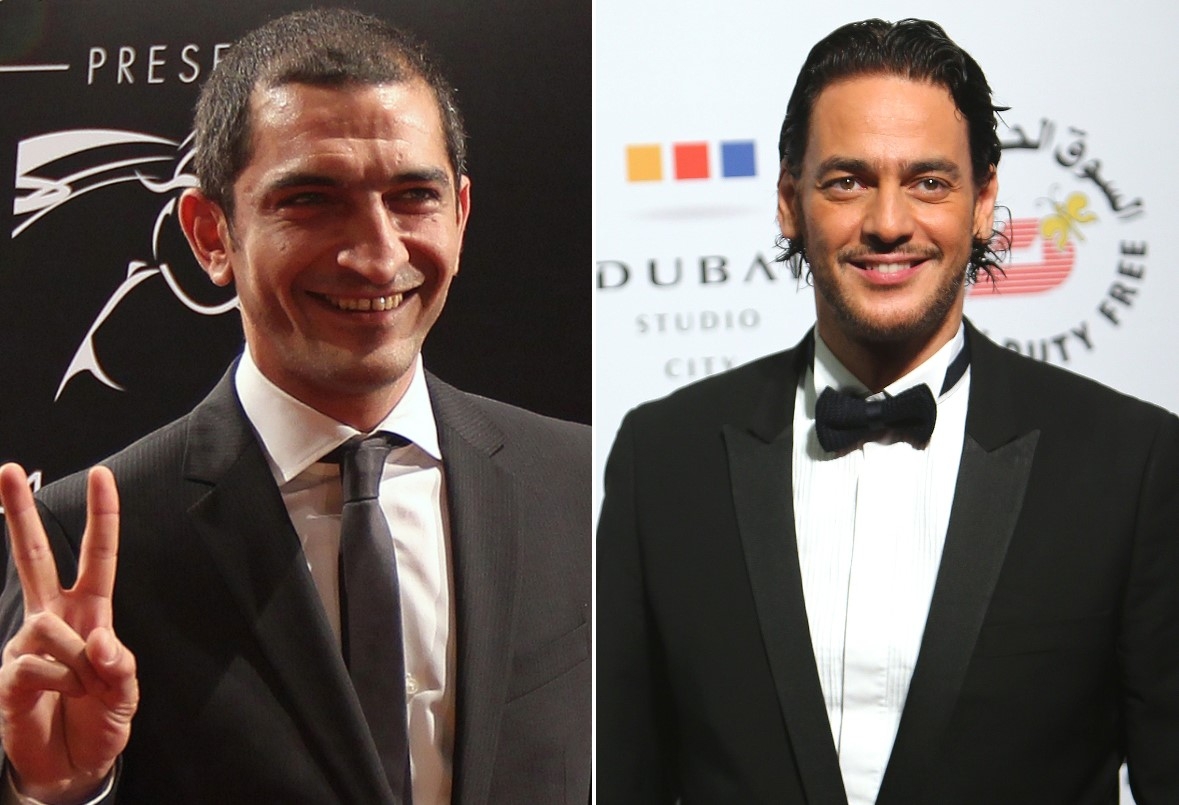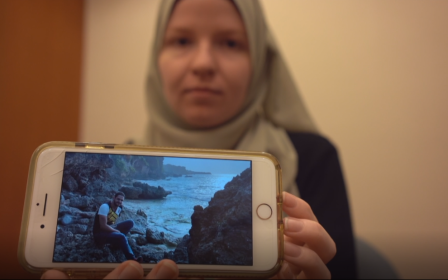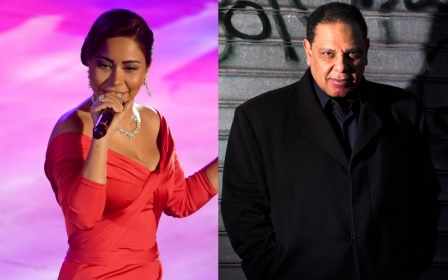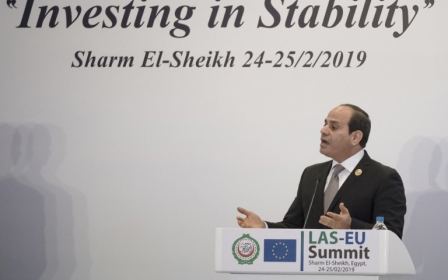Egypt actors' union expels Amr Waked and Khaled Abol Naga for Sisi criticism

Egyptian actors Amr Waked and Khaled Abol Naga have been expelled from their country’s actors’ union, the organisation said on Tuesday, two days after publicly criticising Egyptian authorities in a US congressional hearing.
The prominent pair used their platform on Monday to decry Egypt’s worsening human rights situation and shine a light on constitutional amendments being pushed through that could keep President Abdel Fattah el-Sisi in power until 2034.
In response, the syndicate released a statement expelling them from the union and accusing them of "betraying the nation" and pushing "the agenda of conspirators against Egypt's security and stability".
"The Actors' Syndicate considers what happened with Amr Waked and Khaled Abol Naga high treason to the country and the people of Egypt," head of the union Ashraf Zaki said in a statement seen by Middle East Eye.
"Both actors will no longer be allowed to act in Egypt," Zaki, a 58-year old actor, told the AFP news agency on Wednesday.
New MEE newsletter: Jerusalem Dispatch
Sign up to get the latest insights and analysis on Israel-Palestine, alongside Turkey Unpacked and other MEE newsletters
"The decision prohibits anyone from assigning them to any acting jobs."
The pair have dismissed the move on Twitter, accusing the union of playing a “political” role.
Translation: What the informants of the union did is a violation of the rights of two members, complete disregard of the laws of the union and incomprehensible interference in the political choices of the members. And what’s all that for? For the nationalists' power or cash? Rest assured that the light is coming.
Waked and Naga both publicly backed Sisi’s military coup against Egypt’s first democratically elected leader Mohamed Morsi in 2013, but have since become critics of the former general’s government.
'More than ever, right now, Egyptians need that hope, that light at the end of the tunnel'
- Khaled Abol Naga, actor
At the hearing on human rights in Egypt, Waked and Naga joined activists and members of US Congress, urging international solidarity with Egyptians currently living under military rule.
Naga called on "every peace-loving human being" to stand with Egyptians struggling against tyranny, describing people in his country as being either behind bars of fear or actual prison bars.
"More than ever, right now, Egyptians need that hope, that light at the end of the tunnel," said Naga, who has starred in dozens of Egyptian and Western movies and shows.
Pro-government attacks
Both Naga and Waked have faced pro-government Egyptian media campaigns vilifying them and accusing them of playing a part in various plots to take down the state.
Waked on Monday ridiculed such charges, saying that the Egyptian government has developed an "allergy" to the truth in its quest to crush dissent.
"I've been accused of insulting the state, just because I voiced my opinions about politics and about events that are happening in my country," he said.
"I think those who are insulting the state every day are the ones who are reducing it to one person."
In 2013, Waked won the Best Actor award at the prestigious Dubai Film Festival and is known for his roles alongside George Clooney in the film Syriana and Scarlet Johanson in Lucy.
However, earlier this month he was sentenced in absentia to eight years in jail in Egypt because of his criticism of the government.
The Egyptian embassy in Spain, where he lives, has refused to renew his passport, the actor has said, apparently in an attempt to force him to return to Egypt and face his charges.
Amr Magdi, Egypt researcher at Human Rights Watch, said the Waked case showed that Sisi has taken Egypt to a level of oppression that only exists in a handful of countries.
“Egypt's government led by President Sisi seems to observe no red lines at all in its relentless pursuit to crush all dissent,” Magdi told Middle East Eye.
“Even a well-known actor who just voiced some opinion on his Twitter page is not tolerated."
Middle East Eye delivers independent and unrivalled coverage and analysis of the Middle East, North Africa and beyond. To learn more about republishing this content and the associated fees, please fill out this form. More about MEE can be found here.




